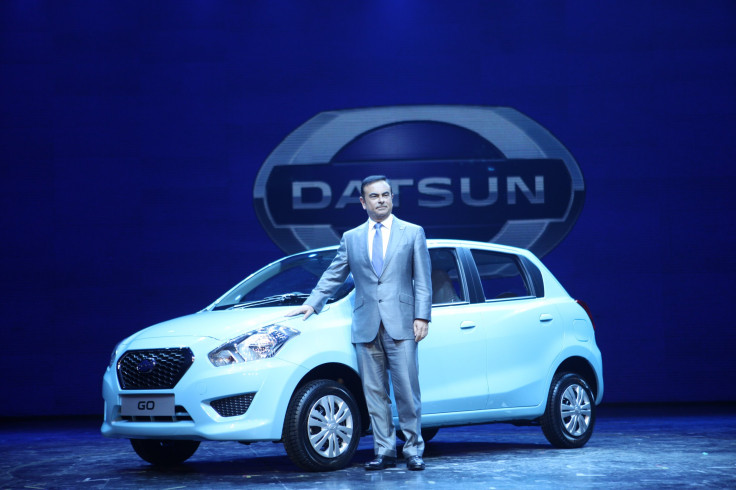Renault-Nissan To Invest An Additional $2.5B In India, Expects Resurrected Datsun To Bring In Half Its Revenues Over Next 3 Years

Renault SA (EPA:RNO) and Nissan Motor Co Ltd (TYO:7201) will jointly invest $2.5 billion in India over the next five years, bringing its total investment to $5 billion, as the automaker joint-venture struggles for space on India's crowded roads.
Renault-Nissan, the Franco-Japanese alliance, which trails General Motors (NYSE:GM) and Japan’s Toyota Motor Corp (NYSE:TM) in global car sales, has invested about $2.5 billion in India, and will join a growing league of global automobile companies who are pumping billions of dollars in to the country’s auto industry, despite a continuing slump in the nation’s car sales.
"There are so many products coming. Nissan has already said 10 cars by 2016 and Renault is also planning to bring many more. So our overall investments of $2.5 billion in India will double in the next five years," CEO Carlos Ghosn said, according to a report from The Economics Times.
Most of the joint venture's investments so far have been directed at its plant in Chennai, in southern India, and on a research and development unit, and to the creation of a new platform -- CMF-A -- that will support the manufacture of the Datsun and other cars.
Renault-Nissan intends to manufacture cars targeting the “emerging middleclass” of the country, Ghosn said, and is also planning to introduce low-cost cars manufactured on its newly developed platform in India for export to high-growth markets such as Indonesia, Russia and South Africa.
The alliance had a market share in India of about 3 percent last year, and Ghosn said, that the company aims to increase it to 5 percent by the end of 2013 and ramp it up to 15 percent over the next few years.
On July 15, Nissan announced the re-launch of its Datsun brand -- more than 30 years after it stopped production on the iconic automobile -- and unveiled its hatchback model ‘Datsun GO,' which it said will be priced below 400,000 rupees ($6,700) in India.
“We’re bringing it back and giving it a modern shape, with modern technology that is particularly aimed at the high-growth market, addressing the segments where Nissan has no offer,” Ghosn said, in an official media release.
The company expects the Datsun brand to contribute about 50 percent of its sales in India by 2016.
Meanwhile, the company is also developing an ultra-low-cost, or ULC, car, which is expected to be priced slightly above TATA’s Nano, and will be aimed at the cost-conscious Indian market and other high-growth markets, Ghosn said, according to media reports. The Nano's base model retails for about $2,700.
Nissan and Renault also announced, on Monday, that the two companies would stop sharing products in India, after the launch of Nissan’s ‘Terrano,’ which shares features of Renault’s popular model 'Duster.'
The partnership, like many others in the automobile industry, was involved in badge engineering -- the practice of selling one car with minor modifications under two brand names.
Car sales in India have been mostly declining over the past year, due to rising fuel costs and falling consumer sentiment as Asia's third-largest economy has experienced a slowdown in growth. Car sales fell for the eighth straight month in June, even as rising input costs and steep discounts to spur sales hurt automakers' margins.
According to the Society of Indian Automobile Manufacturers, an industry body, sales of passenger vehicles declined by 7.24 percent in the April-June quarter over the same period last year. However, automakers continue to invest in the country, betting on a resurgence of demand in India’s automobile market, which is expected to become the world’s third largest, by 2020.
© Copyright IBTimes 2024. All rights reserved.












